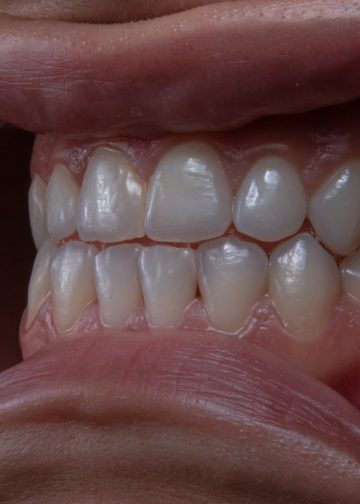Key Takeaways
- Waking up in the middle of the night is common, but staying awake too long disrupts your sleep cycle and health.
- Avoid checking your phone, overthinking, or eating heavy snacks after waking up suddenly.
- Use natural methods like breathing exercises, changing sleep positions, or playing ambient sounds to fall back asleep.
- If you're still awake after 20–30 minutes, get out of bed and do something boring and relaxing.
- Consistently poor sleep might be a sign to reevaluate your lifestyle or see a sleep specialist.
In the morning, we struggle to wake and at night, it’s the opposite. While explaining this stretches our capabilities, we can tell you easy ways that will help you fall back asleep quickly.
Why It’s Important To Fall Back Asleep Quickly?
Waking up in the middle of the night is pretty annoying especially when those late night thoughts hit you. Symptoms of not sleeping are serious; if you stay awake for too long, it throws off your sleep cycle, leaves you feeling groggy, irritable, or just plain “off” the next day.
Even your body misses out on that precious deep sleep, which is crucial for all the behind-the-scenes work it does like repairing muscles, recharging your brain, and keeping your mood in check. And if this becomes a regular thing, it leads to long-term sleep problems that mess with your focus, memory, and even your immune system.
That’s why getting back to sleep quickly is key to maximizing your rest, so you wake up feeling refreshed instead of like you just lost a fight with your bed. The sooner you can fall back asleep, the more your body and mind will reward you in the morning with better energy and a clearer head.
Things Not To Do When You Suddenly Wake Up Or Have Trouble Sleeping
When you find yourself wide awake, unable to sleep in the middle of the night, it’s surprisingly easy to make things worse without even realizing it. First off, try not to check the time, doing so just adds pressure and it makes you feel anxious about not getting enough sleep. Then avoid using your phone or the TV, since such things keep the brain active. And scrolling through social media or checking emails is a no-go; it just gets your mind buzzing when it should be winding down. And whatever you do, don’t start overthinking or running through your to-do list for tomorrow, it won’t help you get back to sleep any quicker.
Getting up to clean or work sends a signal to your body that it’s time to be active, which is the last thing you want. Lastly, try to avoid heavy snacks or caffeine; it is tough for your body to relax when you are bloated with it. Instead, keep the lights dim, stay calm, and give yourself the chance to drift back into sleep naturally.
How To Fall Back Asleep Without Taking Any Pills?
Stay In Bed—But Change Positions
If you find yourself tossing and turning in the same spot, it is time to switch up your sleep position. Sometimes, just rolling over to the other side, adjusting your pillow, or rearranging your blanket can give your brain a little reset. You’re not actually getting out of bed, but you’re breaking that “restless” cycle. It’s a small change that can really make a big difference!
Use Breathing Techniques That Actually Work
Simple breathing exercises help calm your nervous system and get your body ready for sleep again. Give this technique a try:
- Inhale for 4 seconds
- Hold your breath for 7 seconds
- Exhale slowly for 8 seconds
Do this for about 4 to 5 cycles. It helps shift your attention away from racing thoughts and back to your breath, and that’s often just what you need to help your body ease back into a sleep-ready state.
Try Progressive Muscle Relaxation
If your mind is racing and won’t quiet down, try shifting your focus to your body. Begin at your toes and gradually move up. Gently tense and then relax each muscle group. Start with your feet, then your calves, thighs, stomach, arms, shoulders, and so on. This simple act of physical release makes your body let go of any hidden tension and guide your attention inward.
Get Out Of Bed After 20–30 Minutes
Resist the urge to grab your phone or flick on any bright lights. Instead, head to another room and engage in something a bit dull. Maybe read a few pages from a book that doesn’t exactly thrill you, or listen to some gentle instrumental music. Let go of the urge to look at screens and anything that gets your emotions stirred up or makes you feel productive. The idea here is to help your body understand that staying awake isn’t all that exciting and that your cozy bed is the much better choice.
Use Ambient Sounds
Sometimes, total silence just doesn’t cut it. If your thoughts are racing, having some low-level background noise calms your mind. It could just be white noise, the sound of rain, or even a soft fan. These gentle sounds, often found easily on YouTube, will help you make a soothing atmosphere. If you haven’t tried using a sound machine or a sleep app yet, it is a good idea to give it a shot.
Cool Down The Room
To drift off into a good night’s sleep, your body needs to cool down a bit. If your room feels too warm or stuffy, toss off the blanket for a few minutes or turn on a fan. A cooler space makes it easier to fall asleep more easily with no medication required!
Do A Quick Mental Dump
Sometimes, it feels like your mind is just overflowing. You are constantly replaying old conversations, stressing about what tomorrow holds, or even crafting imaginary grocery lists. A great tip is to keep a notepad by your bed and quickly jot down whatever’s swirling around in your head. Once it’s on paper, your brain gets the hint that it can take a break for now.
Avoid Overthinking The Sleep Itself
Isn't it funny how worrying about not getting enough sleep can actually keep you awake? Instead of lying there and counting down the hours until your alarm goes off, try to gently redirect your thoughts. Picture a neutral memory,maybe you are strolling through a grocery store or folding some laundry. By replaying these simple, everyday moments, you can help your mind ease into a more restful state.
What If You Still Can't Sleep?
If nothing works, just get out of bed and engage in something relaxing under soft lighting—go read a book, listen to some gentle music, or do a bit of light stretching.
If sleepless nights persist, then keep an eye on your daytime habits on factors like caffeine intake, stress levels, screen time, and irregular schedules can quietly disrupt your nights. Or lastly, just change your bedtime routine and the environment around you. If sleep issues linger for weeks and start to impact your daily life, it is the best time to consult a doctor or a sleep specialist.
Conclusion
Occasional insomnia isn’t bad, but persistent one will definitely ruin your health. Do not take this lightly, while it’s all fun and games to poke fun at lack of sleep, it’s important to consult a doctor if the problem persists.





















